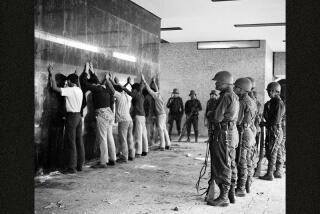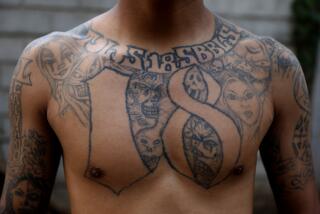Justice Waits in Murder of Nuns
- Share via
It is hardly a surprise. Four soldiers who were jailed for the notorious rape and murder of American nuns in El Salvador in 1980 now say they acted on orders from high superiors. A 1993 United Nations Truth Commission report had alleged a high-level cover-up, and there was suspicion from the beginning that the soldiers hadn’t acted independently.
But back in 1980, the new Reagan administration was backing the Salvadoran government against left-wing insurgents. Secretary of State Alexander M. Haig testified to Congress that the four victims, who worked with poor peasants, were perhaps shot because they appeared to be running a military roadblock. The State Department’s official report pretty much exonerated the Salvadoran high command.
Now, armed with the soldiers’ new statements and other evidence obtained by the nonprofit New York-based Lawyers Committee for Human Rights on behalf of the victims’ families, the United States should finally and fully get to the bottom of the incident. One reason is that the two men named in both the U.N. report and by the soldiers, Col. Carlos Eugenio Vides Casanova, a former director of El Salvador’s national guard, and Gen. Guillermo Garcia, minister of defense at the time of the killings, now reside in the United States. Their legal residency could be in question if they are found to have lied about their past.
It is not clear how the troops who carried out the killings would have known the names of top-level commanders who issued such orders. For that and other reasons, the U.S. Embassy in San Salvador, the FBI, the State Department and the Immigration and Naturalization Service need to independently reexamine the case.
Maura Clarke, Jean Donovan, Ita Ford and Dorothy Kaze--three nuns and a Catholic lay worker--did not stand a chance on the night of Dec. 2, 1980. Knowledge of the truth would go a long way toward healing the wounds inflicted by these murders.
More to Read
Sign up for Essential California
The most important California stories and recommendations in your inbox every morning.
You may occasionally receive promotional content from the Los Angeles Times.













